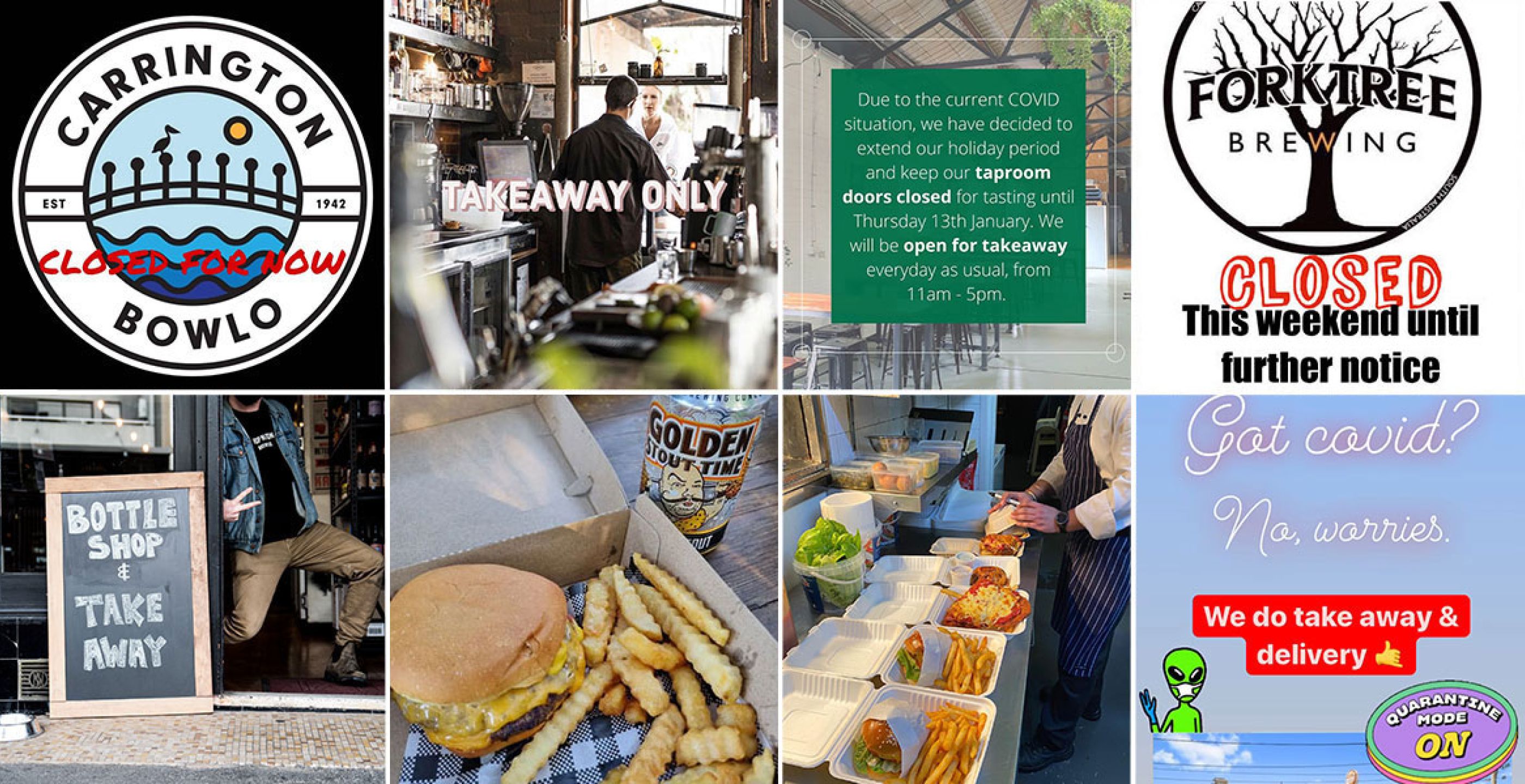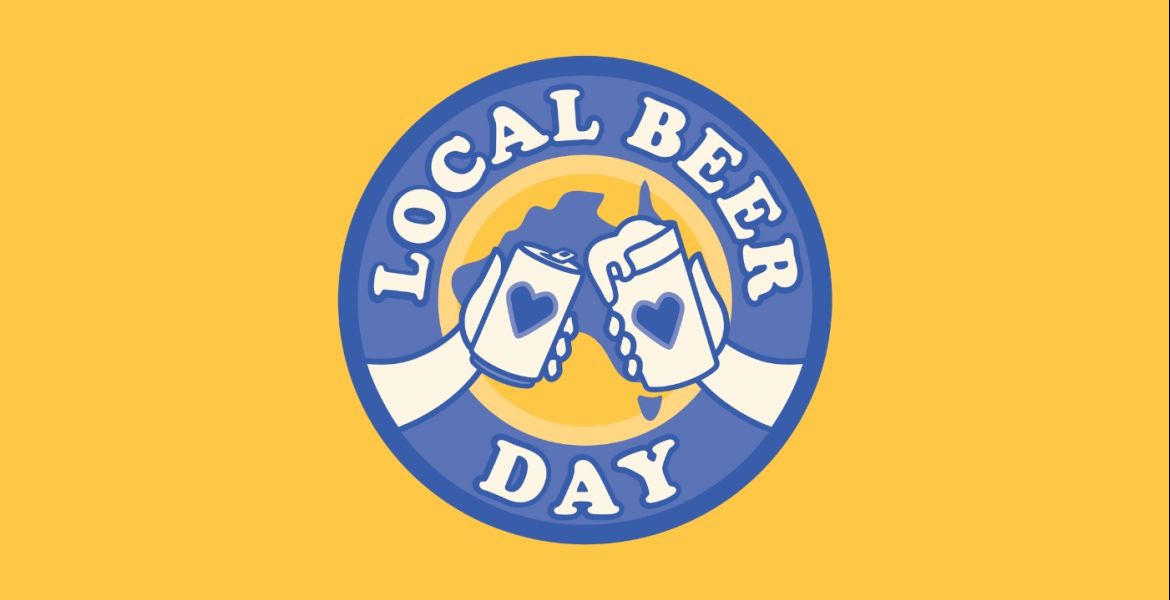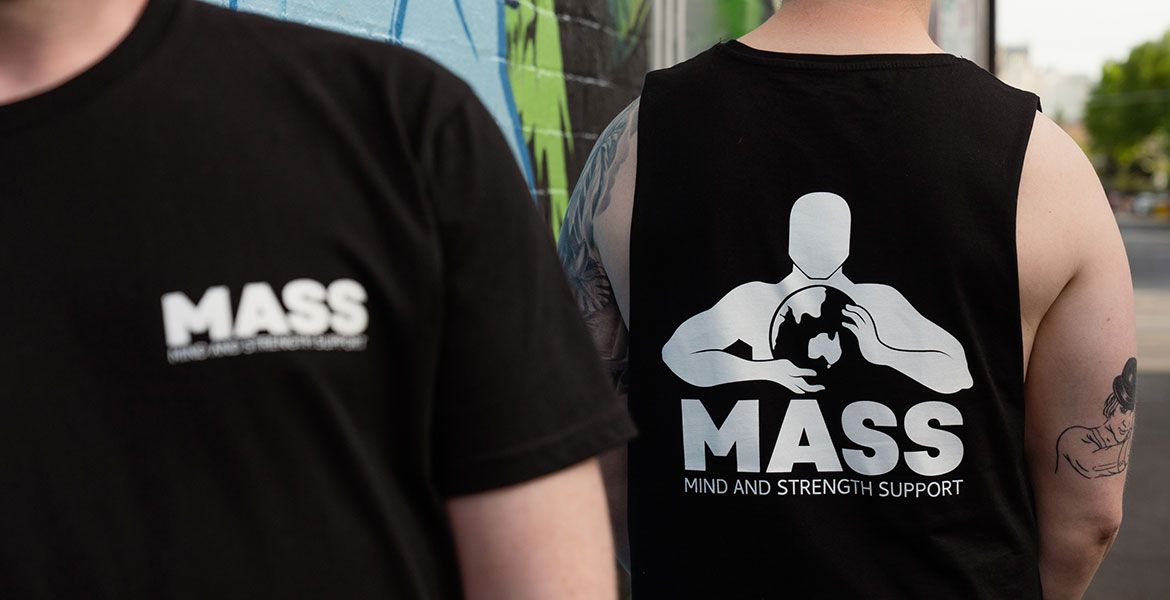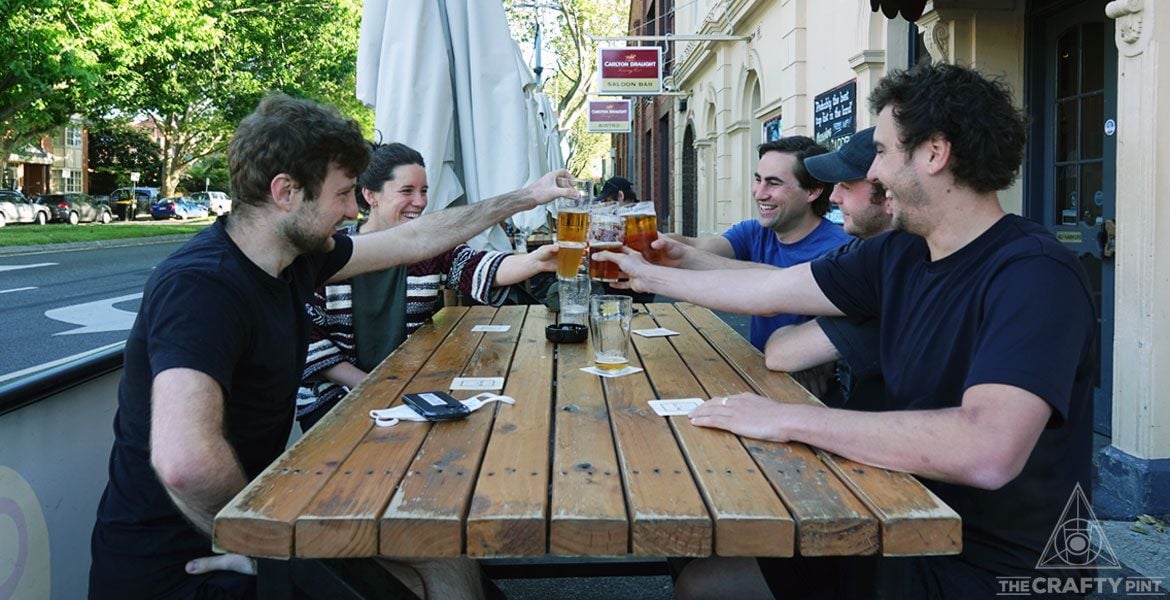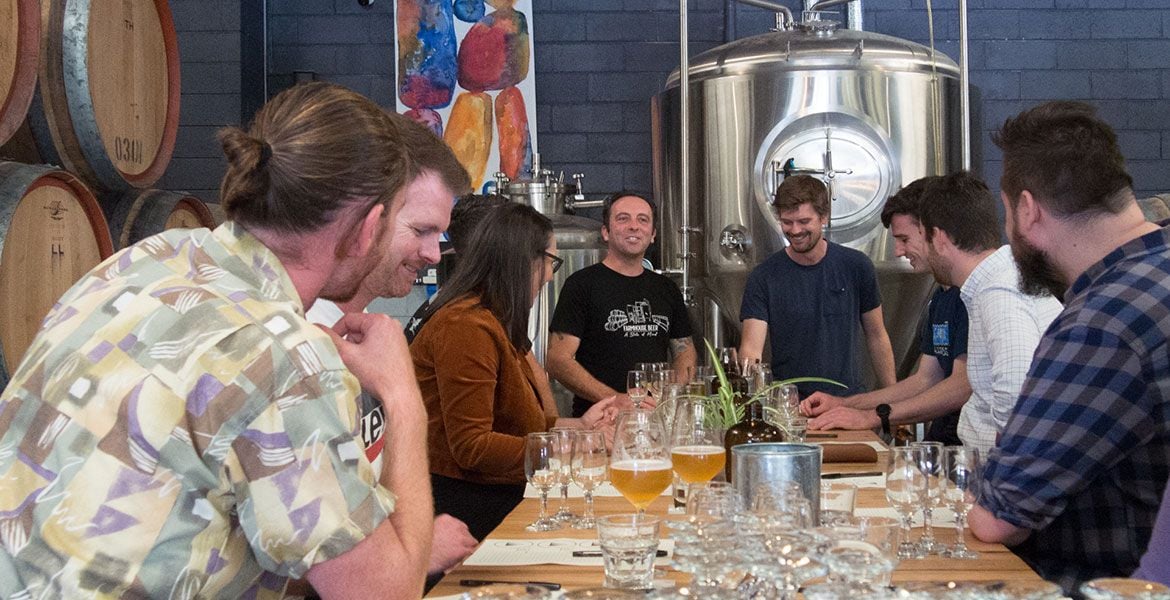“Hopefully this is rock bottom.”
As hopes go, it’s not the most uplifting one to kick off a new year, but after three consecutive summers in which they’ve been hit with fresh challenges – first bushfires then the evolving pandemic – it’s not surprising Dereck Hales, owner of Melbourne’s Bad Shepherd Brewing Co, feels that way.
“How scary is it to say that?” he adds for emphasis.
Even judged by the standards of the past 22 months, the situation across Australia is best described as chaotic, especially within the wider hospitality community. While most of the country remains technically open, notwithstanding new restrictions coming into force in Victoria tonight, the reality is far different.
Due to positive cases in staff, customers or at home, businesses are closing for days at a time or longer, events cancelled or scaled down, and phrases like “crisis mode” are commonplace.
Compounding the situation is the lack of any government safety net as things stand. JobKeeper is long gone, seemingly for good, and other state-level support that helped many businesses stem losses in 2021 has dried up just like the supply of rapid antigen tests.
“This year feels different,” Dereck says, “because there’s no confidence. [At the start of the pandemic] there was hope because we didn’t know what we didn’t know. People were sitting at home, drinking and partying on Zoom calls, and supporting small businesses.
“Now, this is the worst it’s gotten and there’s less energy to get through it.”
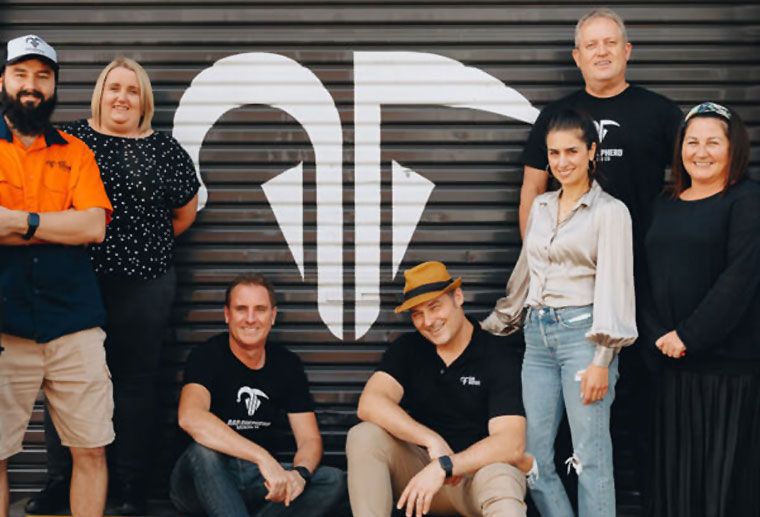
Bad Shepherd were forced to close their Cheltenham brewpub this week with 90 percent of staff either COVID positive or close contacts in isolation. At the time of writing, they also had just two of a desired five brewery staff working; lose one more, says Dereck, and they’ll have to pause manufacturing too.
It comes on the back of a slower-than-hoped-for holiday period. While visitors flooded back once Melbourne’s sixth lockdown ended late last year, they only took 50 percent of their usual income in the week leading up to Christmas as many people chose to self-isolate to protect their festive plans, and with traditional end-of-year parties thin on the ground. Then, following two busy days on December 28 and 29, patronage dropped sharply again as case numbers rocketed; on New Year’s Eve, just 17 people came to the venue – around ten percent of their typical NYE crowd.
“It’s become a self-governing lockdown,” Dereck says. “Everyone is staying home because they have to or through fear. For us, even if we were open this week we would have struggled.
“It doesn’t seem like the government has any intention of offering anything, so we have to find a solution ourselves. We have to self-regulate the recovery too.”
GIVE US A BREAK
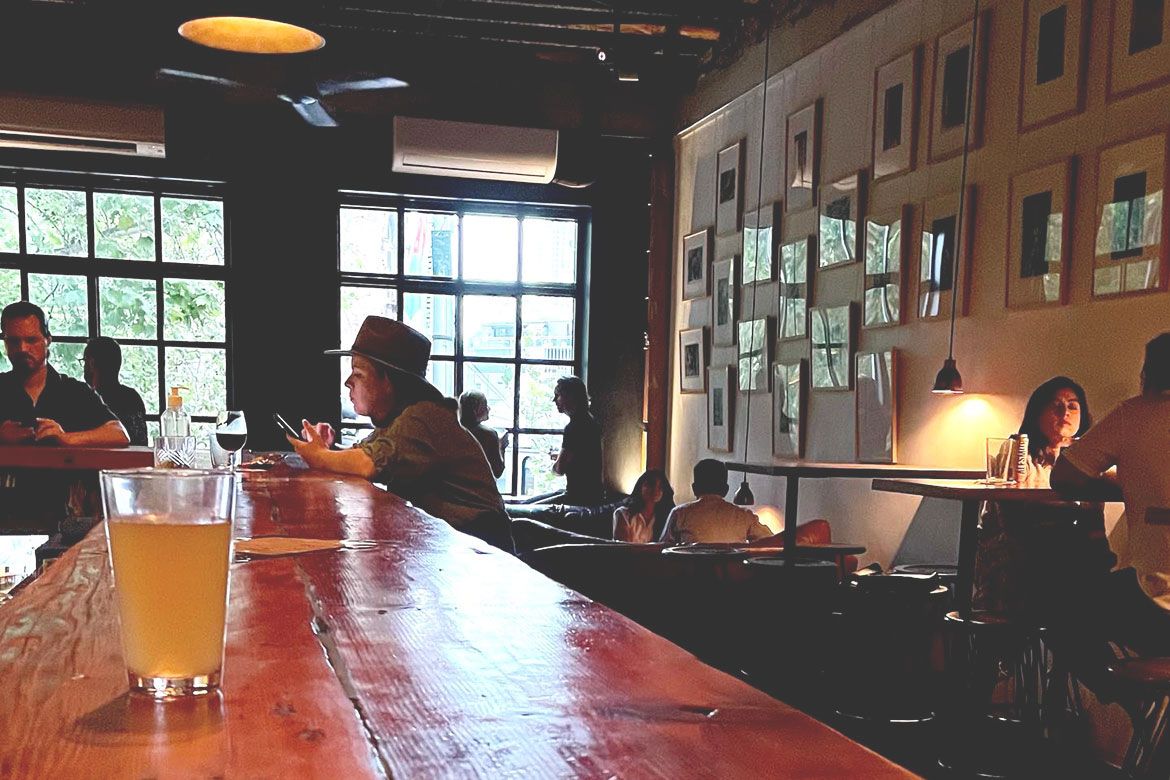
While the Bad Shepherd team hope to reopen next week, pioneering Sydney craft beer venue Bitter Phew today threw open its doors for the first time in 2022. They closed two days earlier than planned before Christmas; now their second reopening in quick succession after the city’s extended lockdown of 2021 arrives a few days later than initially intended.
Founder Aaron Edwards says the decision to close for longer than usual over the holiday period was due to the escalating COVID situation across the city, but was driven as much by personal as practical concerns.
“We had to pull the pin more for just me and the staff,” he says. “Everyone is tired, everyone is done. We didn’t close for staffing reasons or because staff had COVID, it was just becoming a case of, ‘Give us a break’, which was then reinforced by what happened afterwards.”
The Oxford Street bar shut up shop for most of the 2021 lockdown after initially attempting to find ways to keep operating and providing shifts for staff who needed them. But “the more it went on, the more complicated it got,” Aaron says.
While he believes it was the right decision, it hasn’t come without costs. He’s grateful for what support they received from the NSW state government during the 107 day lockdown, but they entailed financial losses, and prior to taking time off over Christmas and New Year he’d been working 90-hour weeks for six months.
Talking to The Crafty Pint hours before welcoming his first customers of 2022, he says there’s much uncertainty as to what lies ahead.
“Beer sales are quite quiet, and January is the excuse that we will start using, but what will happen in February, March, or June, July, August?” he says. “That’s the bigger concern.
“There’s this idea of a new normal, but we still haven’t established what that is yet. We thought we’d dealt with [COVID], but now it’s getting to the point where people are so over it it’s like, ‘Give me Omicron – I want it over and done with.’.”
He says it becomes harder to plot a route through the pandemic “when the guys at the top don’t know what they’re doing”, and when “everything has been six months too late every single time”.
“We’re relying on the higher-ups to do their job so we can do ours.”
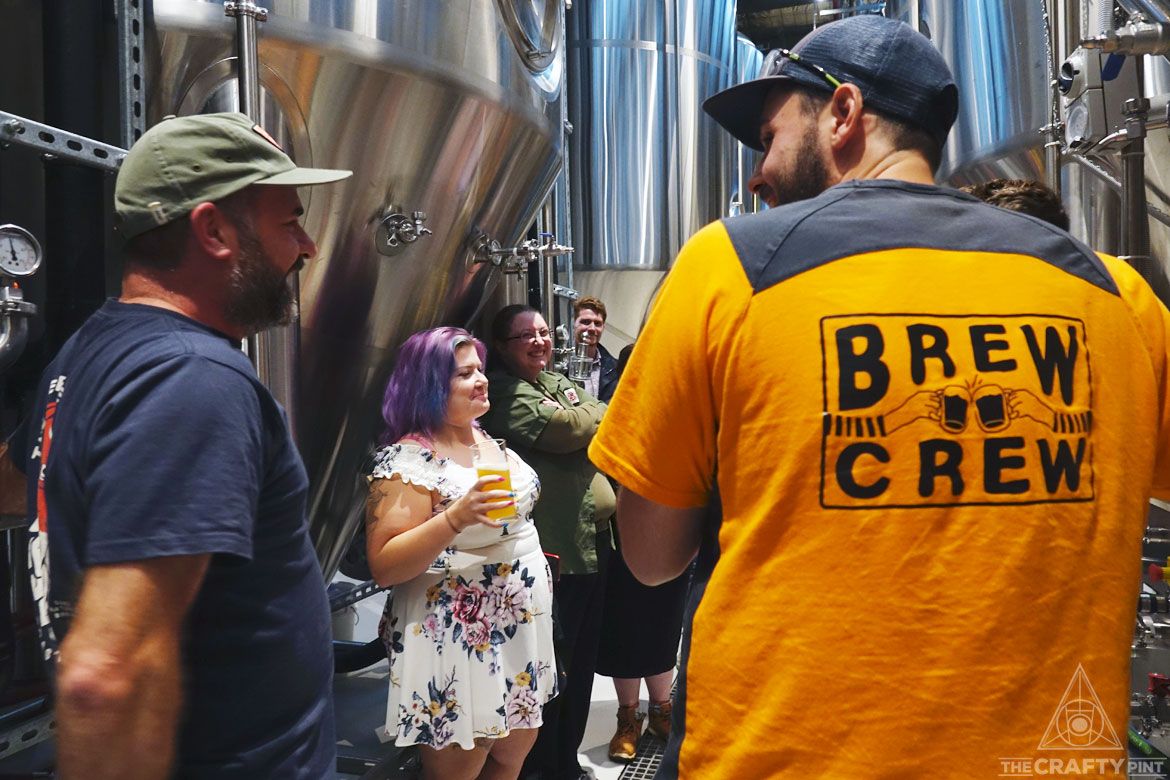
In Canberra, Capital Brewing have been forced to close their vast brewery venue twice since ACT's lockdown ended due to staff in isolation. Yet head of partnerships, community engagement, sustainability and events, Dan Watters, says they count themselves as relatively lucky. They enjoyed near normal trade prior to Christmas, unlike many of the businesses they supply in Sydney and Newcastle who were hit by spiralling case numbers.
“Our sales team were reporting back to us venues in Newcastle shutting because they didn’t have staff, and losing massive bookings for hundreds of people," he says, "so my heart goes out to them."
A lack of staff – a situation the beer and hospo industries were already facing last year – is widespread in the ACT; recently, the team at the Old Canberra Inn reached out to Capital to see if they could borrow some of theirs.
“They were calling us going, ‘Can you spare any staff?' and we had to go, ‘Sorry, but we’re in exactly the same boat.’
“We’re all trying to help each other out but, at the end of the day, hospitality staff are somewhat frontline and having to isolate on a semi-regular basis so there just aren’t enough people to man the venues," Dan says.
“They’ve got so much uncertainty as to whether they’re going to be coming into work tomorrow or going into isolation because there’s been another exposure.”
It creates a workforce with little income guarantee, a harsh reality heightened by the lack of government aid that softened some of the blows in 2020 and 2021.
“The support is gone and the irony of that, of course, is that by the government not imposing lockdowns by saying they want to keep the economy running, there are such widespread cases that you can't keep operating and people have lost confidence and aren’t going out.
“I think at the moment the challenge is the uncertainty of what’s going to happen next. It feels like the government isn’t going to impose any more lockdowns, but who knows? Certainly, it’s making planning any events extremely challenging because you don’t know where we’re going to be in a month or two months.”
PAYING THE PRICE
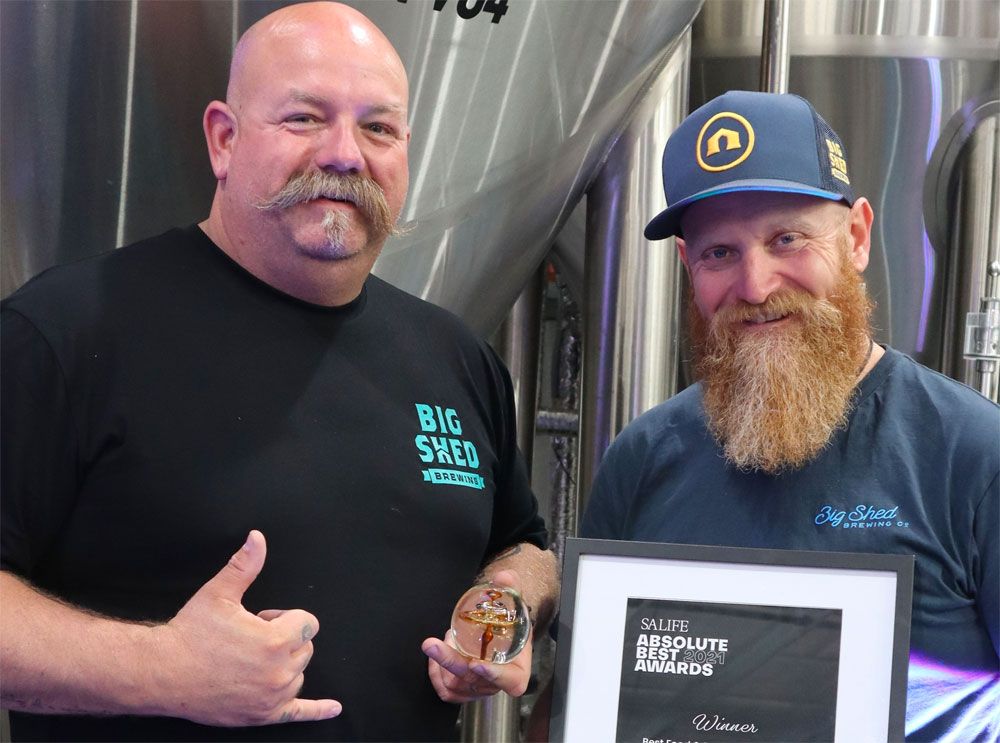
South Australian businesses have, for the most part, avoided lengthy lockdowns, but they have faced ever-changing restrictions. These have been tightened since borders reopened and COVID cases started climbing fast, with the HomeBrewed festival from the Adelaide Beer & BBQ Fest team falling victim earlier this week.
Craig Basford, co-founder of Big Shed Brewing, describes the situation for hospitality and breweries in the state as dire. On Boxing Day, Premier Steven Marshall announced capacity for hospitality would be reduced to one person per four square metres indoors.
“I feel like the hospitality and brewing industry [is] paying to protect the public," Craig says, "and I’m all for doing what we need to do. But I can’t fathom how someone can reasonably look at it and deny someone 75 percent of their legal business but not pay anything towards you doing that.”
He describes a widespread feeling for business owners and many in the community as one of fear, something that's been tough to take given they felt they were reaching a “light at the end of the tunnel” moment.
Grants of up $11,000 are available to impacted businesses in SA, but as the Big Shed team struggles with the brutal reality of cutting staff hours, Craig says: “That’s not a good half a day’s trade for us just in our front of house, let alone our wholesale operation. It doesn’t go anywhere near far enough to help people out.
“We’re getting kicked nonstop and it’s tough to get up. You keep getting up, getting kicked again, and you get up again. And you feel like you don’t have an ally in a government that’s supposed to look after you when you’re at your most vulnerable and it’s not our own doing.
"If we’d done it ourselves then I could at least make peace with the fact that we’d stuffed something up. This isn’t something we’ve done and yet we’re trying to pivot, turn and twist and make it work every which way.”
Even before the Boxing Day announcement, venues in SA were already feeling the impact of one person per two square metres capacity limits, compounded by people choosing to isolate so they didn't risk being stuck at home over the holidays – an approach Craig and his family chose too.
“We would have lost over $100,000 in bookings in December just in functions,” he says. “That’s before you talk about the small groups, individual bookings and walk-ups, so it would easily be $200,000 all up.
“That’s just our front of house operations, that’s before you talk about our wholesale customers who are dealing with the same problem.
“This whole premise was opening up and letting people enjoy Christmas with families but the exact opposite occurred. People are not going out, not having functions, and not enjoying their pubs.”
Craig says the lack of government support is made worse by what he sees as a lack of leadership at various levels of government.
“It doesn’t give you any confidence and the natural feeling is to bunker down and ride this out,” he says. “It’s costing the beer and the hospitality industry their livelihoods and mental health.
“I’m watching my friends shut breweries and venues just because they don’t have staff. The problem is none of their overheads are going away; it’s still costing them money to produce things, keep the lights on, and to pay rent and pay loans.
“The government made a conscious decision to let it in, so we should have been ready for the cases and ready with the necessary testing. You shouldn’t have to queue up in your car for ten hours – if you’re sick, what good is this doing you? We are two years deep now.”
THE SEARCH FOR SILVER LININGS
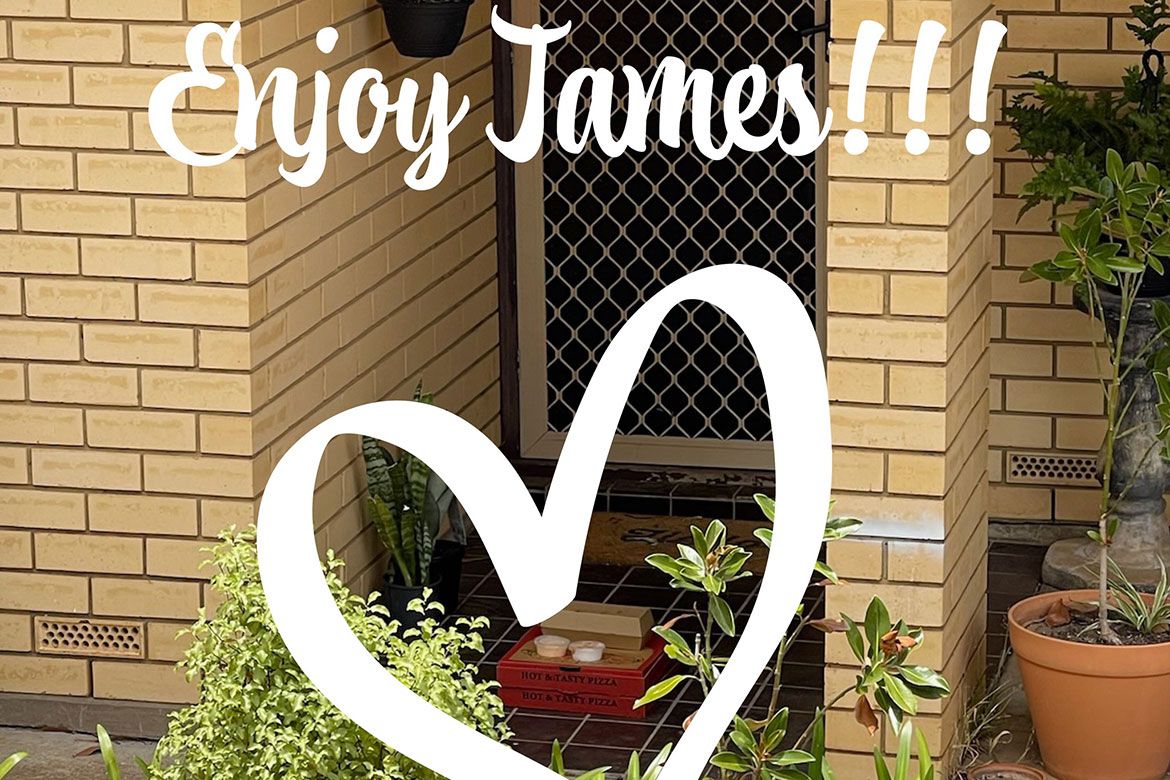
Looking ahead, Aaron says it's unclear whether changes in the public’s behaviour caused or reinforced by the pandemic will prove deep-rooted, not least the rise in drinking at home initially forced upon many by lockdowns and now driven by the perceived risks in going out.
“That’s the bit we’re missing – the sleeping giant in all of this,” he says. “If people change their behaviours then can we have 30 bars in one area, or will it just be 20 bars? Will bars with larger footprints be seen as more accessible as there’s more airflow than in small bars? This is what hasn’t played out.
“Even for people that are quite positive – even for me while I was down the coast, I was cherry-picking where I went. I didn’t mean to, but I did it without thinking because one, I was staying at my parents’ house, and two, I didn’t want to go back to work with it.”
He isn’t without hope, however, even if he’s planning for three months in which he doesn’t expect Bitter Phew to make any money, and says every second social post he sees is another venue announcing they’re closing for a period. While he expects to see businesses with underlying flaws exposed, or tired owners put venues up for sale in the coming months unless there’s significant financial support – “you can only be bashed on your head with a cricket bat so many times,” is how he puts it – Aaron also believes there will be others who figure that anyone still standing on the other side of Omicron will find things much easier.
What’s more, he’s confident staffing issues will be resolved once borders reopen, and that those in the craft beer world will be better placed than some.
“Within reason, the craft beer community is quite solid and resilient, and one of the more supportive arms of the alcohol industry,” he says. “I know I can walk into any brewery and be looked after – it goes across states.”
It's in this sense of community that Craig finds reason to be optimistic too: the support Big Shed's customers have shown throughout the pandemic remains strong.
“That’s been the one silver lining out of this whole clusterfuck,” he says. “They are doing everything they can and supporting us in the best way they can as often as they can. All I’d ask is that they keep doing that to all the little guys.
“We have to get through this together and there’s no other way through it. If you’re in a venue, be kind because we’re all stressing and everything is changing.”
Aaron also sees potential in the current crisis to create change for good: an opportunity to reset and to remind people what his industry is all about.
“It’s not about drinking. Drinking is a by-product of socialising," he says. "The idea of community really needs to be reinstigated. It’s not about going out to get drunk; it could be having a couple of beers with mates after work.
“When I was on the coast, Jervis Bay were running pop-up bars with music near the beach. I could have walked around the corner and done the same thing with my $20 six-pack on the beach, but what made it special was that there were people there. I didn’t need to spend eight or nine dollars on a schooner, but it was about being part of something bigger.
“We just need to reestablish what that actually means. People have forgotten what we’re doing. Why do bars exist? It’s to socialise.”
Once this pandemic is finally over, Aaron and his industry peers will be hoping plenty of us will be eager to rediscover such simple pleasures. And that most hospo venues will still be around, ready and just as eager to be rediscovered.
On the subject of pop-ups, Bad Shepherd will be running pop-up bars in the City of Bayside in the coming weekends. If your business has been forced to change the way it operates, or you're a beer lover wanting to help out, Jules Armstrong is looking to reboot her #emptythekegs campaign too.



